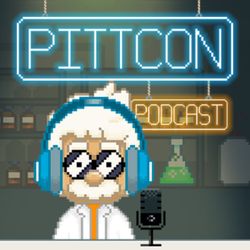Latest episode
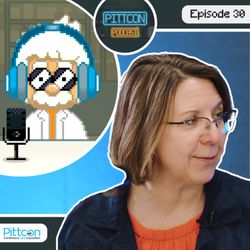
30. Archaeometry and Portable Spectroscopy with Mary Kate Donais
25:15||Ep. 30In this season finale episode of the Pittcon Podcast, Mary Kate Donais discusses her work in archaeometry, focusing on the use of non-destructive analytical techniques to study cultural heritage artifacts. She highlights the importance of portable spectroscopy in analyzing artifacts on-site and the role of chemistry in understanding historical objects.You can read the written interview at:https://www.azom.com/article.aspx?ArticleID=24382Find out more about Pittcon 2026!https://www.pittcon.orgChapters3:34 Introduction to Archaeometry4:31 Portable Spectroscopy and On-Site Analysis12:15 Non-Destructive Techniques in Artifact Study19:31 The Future of Portable Spectroscopy21:10 Pittco, Collaboration and Interdisciplinary Work23:52 Future Directions in Cultural Heritage Preservation#archeometry #archeology #spectroscopy #culturalheritage #analyticaltechniques #science #portablespectroscopy #nondestructiveanalysis
More episodes
View all episodes
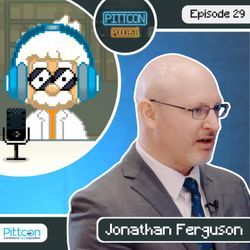
29. Ensuring Safety in Synthetic Psychedelics with Jonathan Ferguson
23:31||Ep. 29Jonathan Ferguson, Science Business Leader in New Strategy for Shimadzu Scientific Instruments, discusses the challenges and advancements in the field of synthetic psychedelics, focusing on quality control and the detection of unexpected compounds in consumer products. He highlights the importance of collaboration and innovation in ensuring product safety and advancing scientific understanding.You can read the written interview at:https://www.news-medical.net/news/20250826/Synthetic-Psychedelics-A-Growing-Public-Health-Concern.aspxFind out more about Pittcon 2026!https://www.pittcon.orgChapters0:00 Introduction to Synthetic Psychedelics3:37 Challenges in Quality Control11:51 Collaboration and Innovation15:25 Consumer Safety and Public Health20:30 Early Background in Research#syndelics #psychedelics #syntheticpsychedelics #analyticalchemistry #science #consumersafety #pittcon #shimadzu #compounds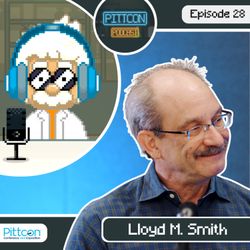
28. Exploring the Complexity of Proteoforms with Lloyd M. Smith
26:20||Ep. 28In this episode, Lloyd M. Smith discusses his journey in the field of proteomics and the development of innovative techniques for analyzing proteoforms. He highlights the significance of top-down proteomics and the potential of proteoform families in understanding complex biological systems.You can read the written interview at:https://www.news-medical.net/news/20250710/The-Proteoform-Puzzle-Unlocking-the-Next-Frontier.aspxFind out more about Pittcon 2026!https://www.pittcon.orgChapters0:00 Introduction to Proteomics7:50 Top-Down Proteomics and Proteoforms9:26 Proteoform Families and Biological Systems12:45 Innovative Techniques in Proteomics21:28 Clinical Applications and Disease Diagnostics22:56 Future Directions in Proteomics#proteomics #proteoforms #analyticalchemistry #science #topdownproteomics #biologicalsystems #pittcon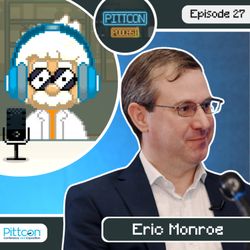
27. Preserving History through Analytical Science with Eric Monroe from the Library of Congress
47:55||Ep. 27In This Episode, Eric Monroe from the Library of Congress discusses the integration of analytical chemistry in cultural heritage preservation. He highlights the use of advanced technologies like multispectral imaging and GC-MS to analyze and conserve historical documents and artifacts, emphasizing the importance of non-destructive methods.You can read the written interview at:https://www.azom.com/article.aspx?ArticleID=24378Find out more about Pittcon 2026!https://www.pittcon.orgChapters0:00 Introduction to Cultural Heritage Preservation13:38 Non-Destructive Techniques and Technologies21:33 Multispectral Imaging and Its Applications30:18 GC-MS in Artifact Analysis38:23 Pittcon, Collaboration and Interdisciplinary Efforts44:30 Future Directions in Preservation#libraryofcongress #culturalheritage #science #analyticalchemistry #ericmonroe#pittcon #massspectrometry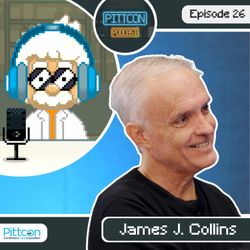
26. From Genetic Toggle Switches to Living Diagnostics and Therapeutics with James J. Collins
26:43||Ep. 26In this episode, James J. Collins, a pioneer in synthetic biology, discusses the evolution of the field from its inception to its current state. He highlights key innovations such as genetic toggle switches, paper-based diagnostics, and living therapeutics, emphasizing their potential to revolutionize healthcare and address global challenges.You can read the written interview at:https://www.news-medical.net/news/20250707/Synthetic-Biology-and-the-Pursuit-of-Living-Diagnostics.aspxFind out more about Pittcon 2026!https://www.pittcon.orgChapters0:00 Introduction to Synthetic Biology9:20 Genetic Toggle Switches and Early Innovations12:45 Paper-Based Diagnostics and Global Health20:15 Living Therapeutics and Future Directions24:05 AI and Machine Learning in Synthetic Biology25:25 Global Impact and Future Prospects#syntheticbiology #genetics #diagnostics #livingtherapeutics #genetictoggleswitches #genomics #science #pittcon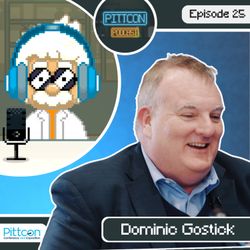
25. Innovating Scientific Instruments: A conversation with Dominic Gostick, CTO of PerkinElmer
20:18||Ep. 25Dominic Gostick, CTO of PerkinElmer, discusses the company's recent transformations and innovations in scientific instrumentation. He highlights the launch of new products like the QSight® 500 and the Spotlight™ Aurora FTIR Microscope, emphasizing their applications in environmental and food safety testing.You can read the written interview at:https://www.azom.com/article.aspx?ArticleID=24384Find out more about Pittcon 2026!https://www.pittcon.orgChapters0:00 Introduction to Perkin Elmer's Transformation4:25 New Product Launches: QSight® 5008:40 Spotlight™ Aurora Microscope and Applications13:45 Focus on Usability and AI17:25 Sustainability and Performance18:36 Pittcon, Networking and Industry Trends#perkinelmer #massspectrometry #science #microscopy #lcms #laboratory #chemistry #analyticalscience #pittcon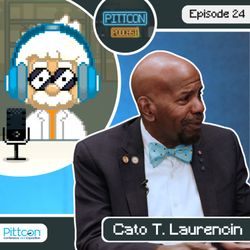
24. The Future of Tissue Regeneration with Sir Professor Cato T. Laurencin
26:24||Ep. 24Kickstarting the new series of the Pittcon Podcast, Sir Professor Cato T. Laurencin discusses his pioneering work in regenerative engineering, a field he founded that combines principles from various disciplines to create new ways to regenerate tissues and organs. He shares insights into his career journey, the development of the Laurencin-Cooper ligament, and the ambitious HEAL Project aimed at regenerating a human limb by 2030.You can read the written interview at:https://www.news-medical.net/news/202...Find out more about Pittcon 2026!https://www.pittcon.org
